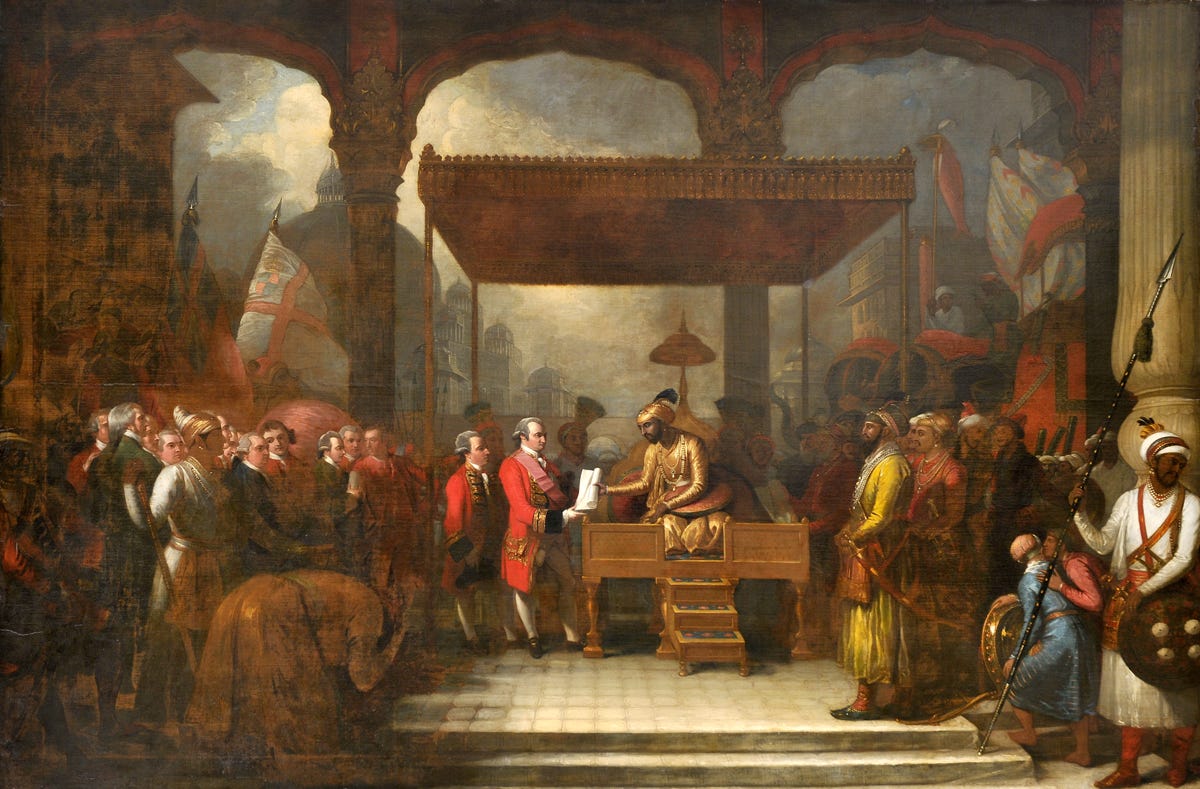Grand Strategy as an Emergent Phenomenon
The concept of grand strategy emerged as an extension of military logic to statecraft. Originally, it referred exclusively to war: Basil Liddell-Hart, who coined the term, defined it as the use of a nation’s full resources toward the attainment of war aims. But just as the definition of strategy expanded from actions on campaign to the entire war, grand strategy got promoted to encompass peacetime as well as wartime. How well can this be described, then, as a level of warfare?
As a working definition, we can say that grand strategy is the way in which a state uses its resources to maintain and advance its position in the world. This broadly fits the criteria for a “level of war”. It is directed toward a specific end, namely, political leaders’ long-term ambitions for their nation on the world stage. It is governed by its own dynamics, determined by military readiness, industrial base, trade policy, etc. It also exists in a hierarchy with the other levels, subordinating all questions of war strategy to its own prerogatives.
There are still some critical differences between it and the other levels of warfare. In the first place, it does not necessarily involve war at all. It may, and it certainly implies competition, but that is very different from the all-consuming dynamics of mutual combat. Similarly, there are no self-contained contests in which grand strategy is applied, akin to a battle, operation, or war. At best, there are periods of intense competition, but even these are open-ended.
A much more serious objection is that it is hard to define who is responsible for grand strategy. Not least, this is because of the difficulty of maintaining coherence over time: the timescale over which grand strategy can be implemented is usually longer than the term of any elected official or even the reign of many monarchs. Although the permanent bureaucracy can provide some continuity of purpose, it is more an inertial force than a positive one.
This points to a deeper problem of executive control. Assuming that a coherent grand strategy can be defined, how well can it be executed? I do not even mean how well does it achieve its intended outcome—to what extent does a nation do what it says it will?
Action vs. Intent
A military’s tactics are not what is written in its training manuals or practiced in exercises, but what it actually executes in combat. Strategy is not to be found in white papers and policy documents, but in the series of concrete decisions taken over the course of a war. Similarly, we cannot view grand strategy as a government’s stated policy, but rather as the sum of actions taken by the various centers of power in that country.
If we are doing an honest accounting, this includes decisions that are out of the government’s hands. An advanced industrial base is so fundamental to a nation’s war-making ability that business decisions, such as which manufacturing to offshore, have grand strategic import. Tech is likewise an enormous part of modern US grand strategy: Silicon Valley assists the DoD with programs development, attracts capital to US markets, and provides a useful diplomatic lever when negotiating trade deals. Historically, the East India Company’s expansion in India committed Britain to a navalist strategy, against the wishes of many who preferred to remain focused on the Continent.

These must be understood as for more than just constraints on politicians’ ability to act. The actions taken by business leaders shape a country’s grand strategy to such a great extent that there is in effect no singular executive authority at the grand strategic level; except in the most authoritarian regimes, the government can at best encourage or restrain certain actions. And that is before even considering how other power centers influence government.
A Commonwealth of Power
One of the greatest sins in discussing the role of politics in warfare is to conflate the sense of the word as statecraft with that as domestic politics. When we say that a war pursues political aims, we mean that it should be conducted according to reasons of state, not the electoral calculations of the commander-in-chief (even if, in practice, the latter will always exert an influence).
Only at the level of grand strategy is this conflation justified. Domestic politics are the process of sorting and coordinating the interests of various players within a nation. A nation’s policy must to a certain extent represent the interests of these constituent groups, and concessions made to different power blocs are a pragmatic acknowledgement of that. Put another way, a nation’s interests are whatever the political process decides they are.
We have already seen how much of what can be classed as “grand strategy” is outside the power of national leaders. But even for those decisions which are the government’s unquestioned prerogative, politicians are often practically constrained in their actions. Take a leader who imposes an embargo on another country, but exempts those exports which are crucial for his own country’s industry (as with the EU vis-à-vis Russian gas). There may in fact be very sound geopolitical reasons for doing so—it is, after all, hard to compete with a broken economy—but that is almost irrelevant. The very fact that he must contend with industrial interests in his decision-making means he is effectively not fully in charge. Spurning the interests of other power players risks future non-cooperation or loss in the next election cycle, a problem that generals do not face from their subordinates.1
This holds true for positive goals as well. US support of China’s bid to enter the WTO was the result of lobbying by American business, which wanted to open a vast new market; this in turn shaped the views of the national security establishment, which was persuaded that China could be converted from a de facto adversary to a US ally. It can be debated whether this policy would have been implemented had the NatSec community been resolutely opposed, but it can hardly be disputed that business interests were what actively drove that policy, resulting in a consistent stance from Reagan to Obama.
Defining the Scope
The classic definition of grand strategy limits it to what the government does: the military, diplomatic, and fiscal decisions over which it has formal authority, as well as the incentives and regulations it is able to apply to certain industries and economic sectors. My contention here is that we should take as a starting point what a country actually does, including its business activity abroad, industrial investment at home, financial and cultural ties, and so forth.
This definition frankly acknowledges that grand strategy often lacks any higher organizing principle and that separate strands might work at cross-purposes. Any logical coherence instead emerges organically from the web of political, commercial, and social alliances that make up the country. The convergence of interests at key points creates a certain irreducible complexity (take, for instance, the impossibility of separating the national security interests at stake in security partnerships from the commercial interests of the accompanying arms sales). This gives us a much more accurate picture of how other powers view a country than any policy statement could: as far as outsiders are concerned, there is little functional difference between what a government allows and what it actively endorses.
At the same time, this definition indicates what governments can do. Even in liberal democracies, the government controls the lion’s share of the tools that shape that country’s course. Forging grand strategy can be compared to the messiness of coalitional warfare, in which the government is always the senior partner. It can wrangle alliances, resolve disputes, and align incentives to focus on certain goals. And like coalitional warfare, grand strategies work best when they allow for a certain degree of internal conflict and recognize the contingent nature of various parties’ shared aims.
This follows a very different logic from tactics or strategy. It is always a mistake to treat even authoritarian powers as if they were military commanders, vested with a unity of command capable of concentrating the full resources of the state toward a planned outcome. As is usually the case, it is far better to evaluate state by their actions than by their avowed plans.
Thank you for reading the Bazaar of War. A lot of time and research goes into each post: if you want to contribute, I have added a paid subscription option. All subscribers will receive a copy of Saladin the Strategist, and I may do subscriber-only specials in the future. You can also support by purchasing my critical edition of the classic The Art of War in Italy: 1494-1529 (US only due to copyright restrictions).
At least nowhere to the same degree. There are many historical cases where generals faced a tough tradeoff between his troops’ and backers’ financial interests and military necessity (this comes up frequently in discussions of whether to sack a town or negotiate a surrender). The interaction of strategic and financial decision-making would make for a fascinating historical study.


Thank you for a such a thorough overview.
A good case in point I can think of is Germany during the lead up to Stalingrad in 1942.
Also as someone else you could give a read is Rolo Slavskiy on substack. He's been documenting the politicing that has influenced the decisions made in the Ukraine War